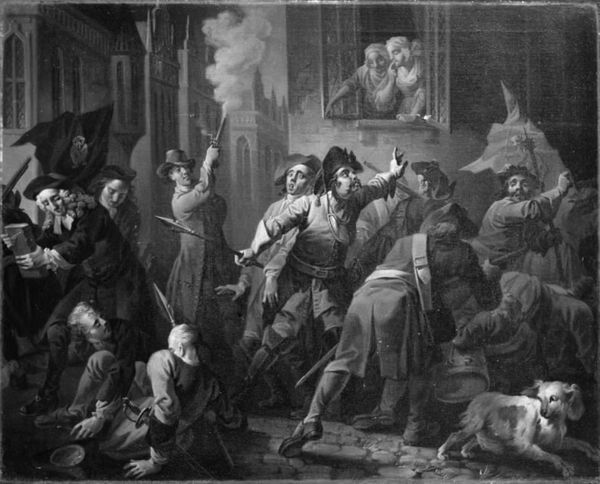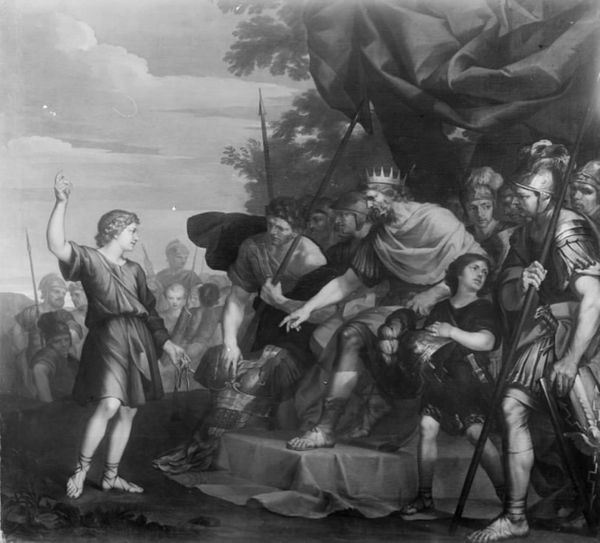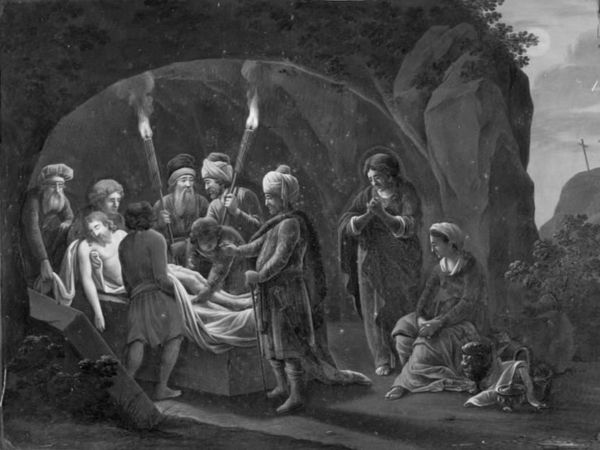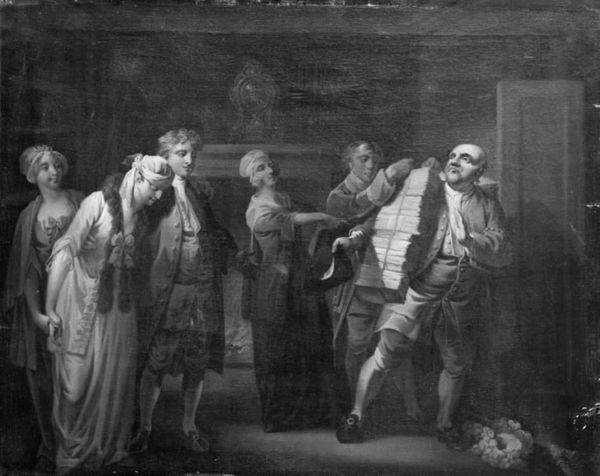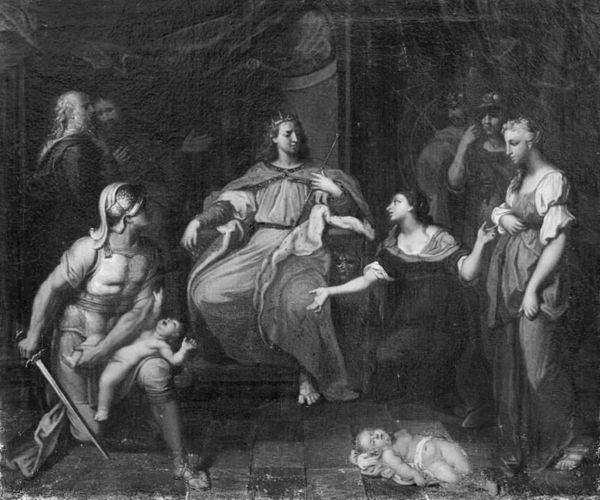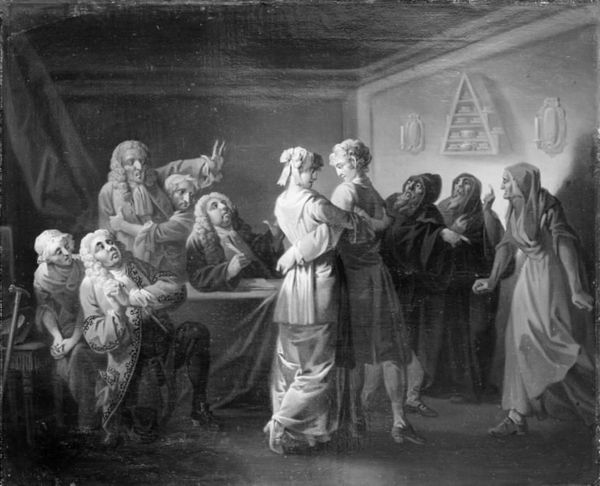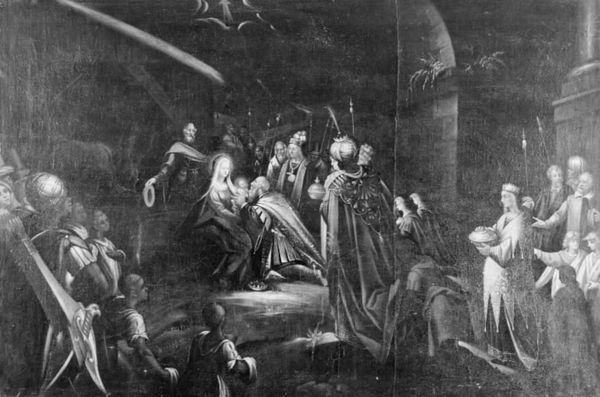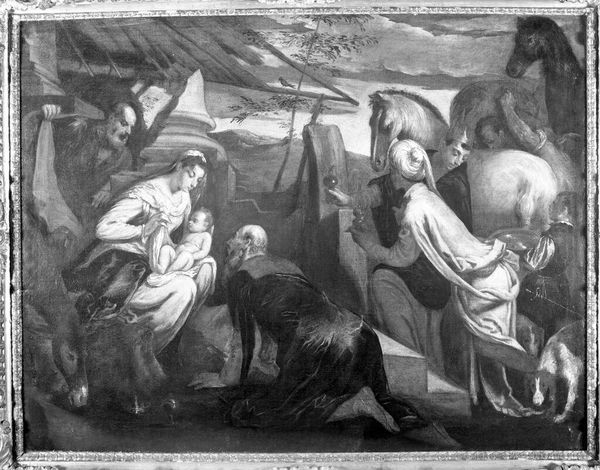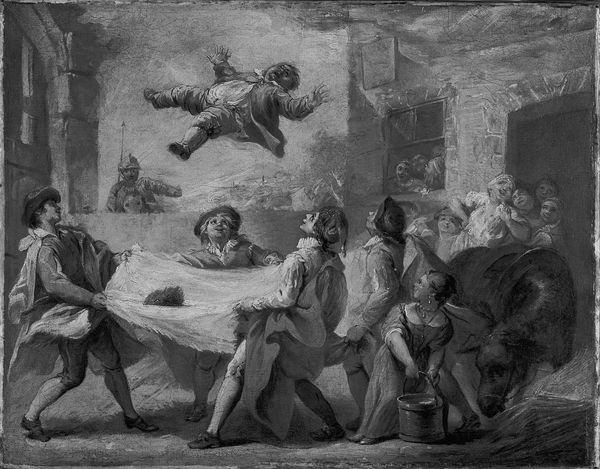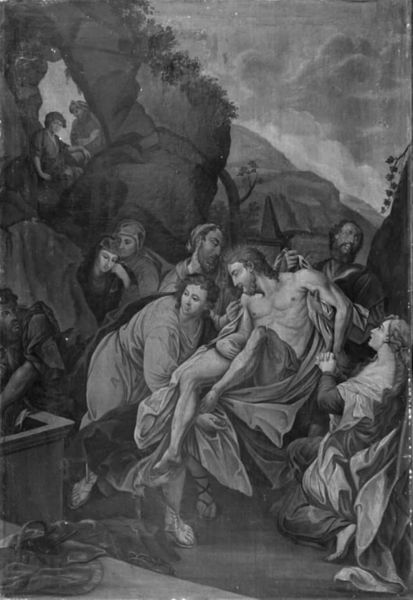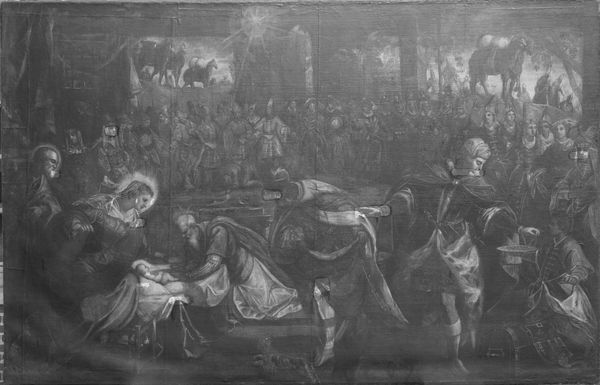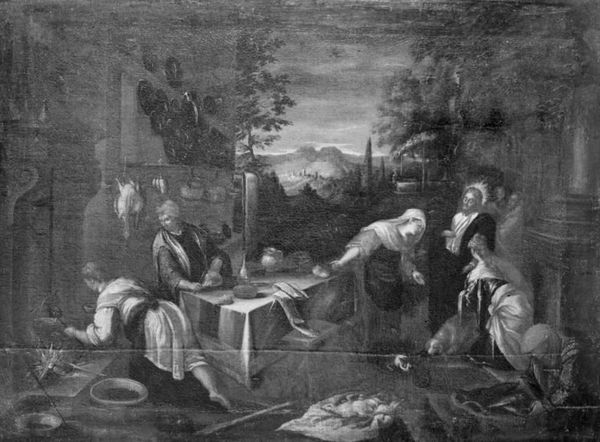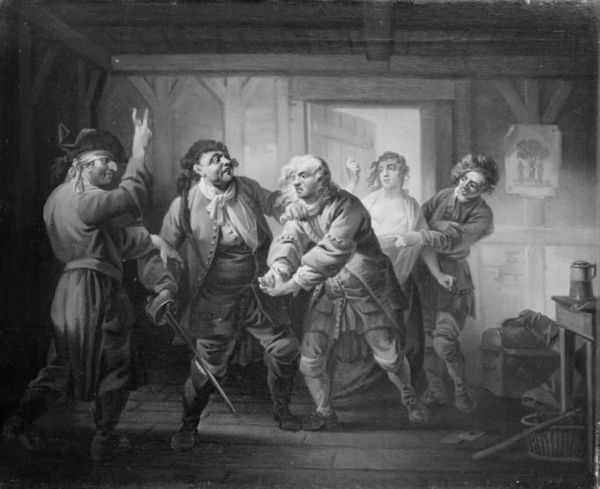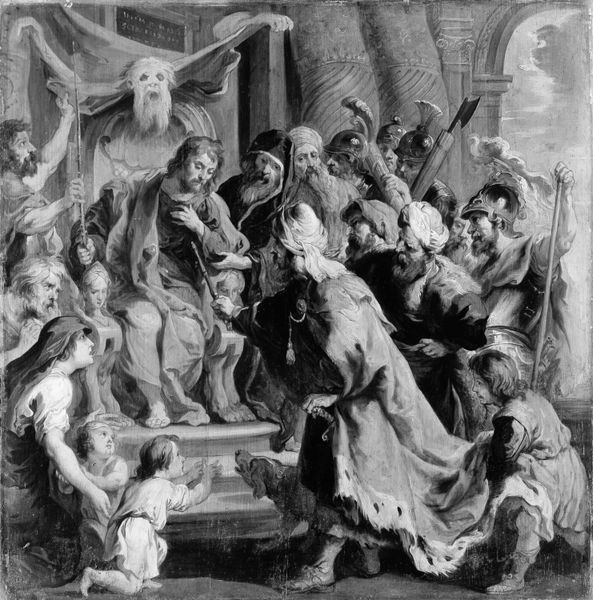
oil-paint, canvas
#
oil-paint
#
charcoal drawing
#
charcoal art
#
canvas
#
group-portraits
#
romanticism
#
black and white
#
genre-painting
#
history-painting
#
charcoal
Dimensions: 60.5 cm (height) x 74 cm (width) (Netto)
Editor: Here we have "Uden Hoved og Hale, II akt, 2. scene", an oil on canvas work dating back to 1815 by C.A. Lorentzen. It's such a dramatic scene depicted in what appears to be monochrome – a chaotic gathering, quite intense. What can you tell me about the material processes and possible implications within its historical framework? Curator: What strikes me is the physical process of its creation. Oil paint applied to canvas—common for the time, yes, but consider the socio-economic implications. Who had access to these materials? Lorentzen's choice situates him within a particular sphere of production and consumption. It isn't just art; it’s an artifact reflecting class and labor. Does that read differently knowing this historical context? Editor: Definitely. It makes me consider the artist's intent differently; it is not necessarily about representing a historical narrative, but rather an artist situated within and commenting on social status? And, although rendered using painting techniques that would have situated this artist as skilled, how would you define "history painting"? Curator: Think of history painting not as a transparent window onto the past but as a crafted commodity. Look at the choice of representing perhaps marginalized individuals. This representation serves to tell something specific about society at the time as much as to create history as propaganda for Romantic ideals of an ancient time. We're meant to *consume* not only the image but also a constructed idea of history, shaped by material conditions and the power dynamics of patronage. What remains visible and what recedes into darkness? Editor: That's such a fascinating insight! I see now how a materialist lens really pushes us to question the making of art. Thank you. Curator: My pleasure. It's through questioning these constructed historical artworks that can unravel broader meanings.
Comments
No comments
Be the first to comment and join the conversation on the ultimate creative platform.
